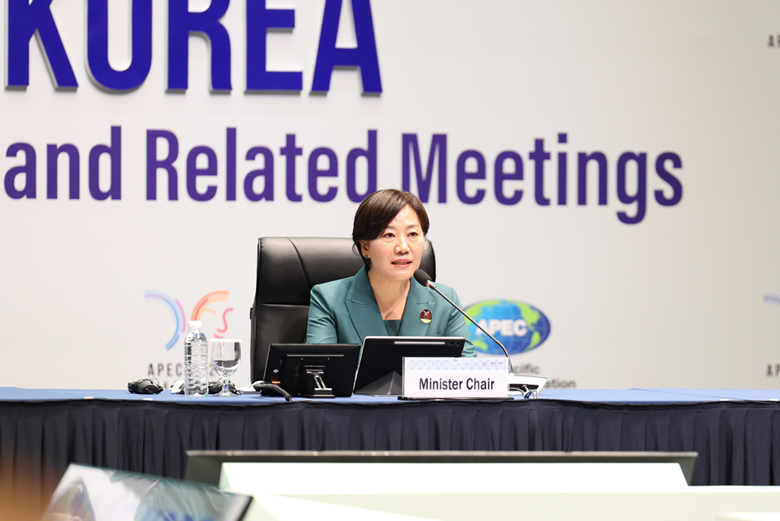
Agriculture and food ministers from 21 APEC member economies convened in Incheon to advance regional cooperation on strengthening food systems amid rising climate shocks, market volatility and persistent inequalities in access to safe, nutritious and affordable food.
Food security remains a pressing challenge, with the latest UN State of Food Security and Nutrition in the World report estimating that 2.3 billion people, or around 28 percent of the global population, were moderately or severely food insecure in 2024. While Asia has seen gradual improvements over several years, rural communities and women remain disproportionately affected.
"Even as we gather here today, hundreds of millions of people around the world continue to suffer from hunger and food insecurity," said Song Miryung, Minister of Agriculture, Food and Rural Affairs of the Republic of Korea, in her opening remarks.
"The convergence of the climate crisis, regional conflicts, and disruptions in global supply chains presents a complex and escalating challenge, one that goes well past mere food scarcity, threatening the very resilience and sustainability of our agri-food systems."
Minister Song emphasized that innovation must be paired with collaboration. "We already have at our disposal a wide array of solutions, including smart agriculture, data-driven policymaking, and digital supply chains. What's more important is this: With whom and how we connect all these elements to bring about real, tangible change on the ground. APEC must serve as the very platform for such collaboration."
Reflecting on Korea's transformation from an aid recipient to a donor economy within half a century, Minister Song said, "This transformation was made possible through innovation in agriculture based on technology and the steadfast economy-wide effort to turn crisis into opportunities."
She outlined Korea's current policy priorities, including expanding smart, data-driven agriculture to all farms, developing new agri-business models powered by AI and promoting region-based solidarity to address challenges such as the climate crisis and labor shortages.
Policy discussions during the meeting focused on strengthening climate resilience in agricultural production, including scaling up climate-smart farming practices, improving early warning systems and investing in research and innovation to increase productivity while reducing environmental impacts.
"The universality of preventing hunger and providing sufficient nutrition, specially towards more vulnerable communities, or those made vulnerable by conflicts and climate change, is a matter the collective APEC cannot turn away from," said Eduardo Pedrosa, Executive Director of the APEC Secretariat.
Ministers also discussed enhancing trade facilitation measures to keep food and agricultural supply chains open, efficient and responsive to shocks.
A second key priority was advancing inclusive food systems that improve nutrition and livelihoods in rural communities, particularly for women, Indigenous Peoples and smallholder farmers. Ministers explored strategies to expand digital agriculture tools, strengthen farmer cooperatives and support youth participation in the agriculture sector.
"This meeting is not merely a forum to discuss food issues. It is a moment for us to collectively envision a future where all can coexist and prosper," Minister Song concluded. "Connect, Innovate, Prosper - these three words are not only the core values that APEC stands for, but also the promise of the future we are building together."






